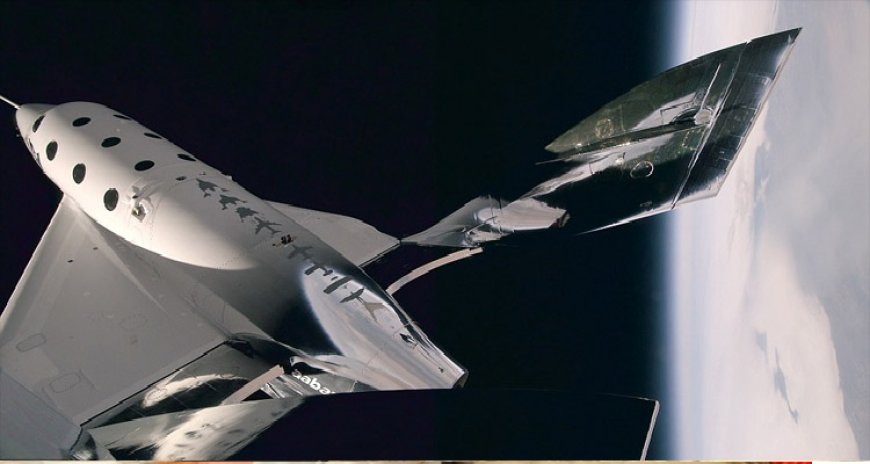Virgin Galactic set for final spaceflight before two-year pause

1.
The "Galactic 07" mission is set to commence around 8:30 am Mountain Time (1430 GMT) from the company's headquarters at Spaceport, New Mexico, according to a spokesperson.
The mission follows a well-established pattern: a large carrier plane takes off from the runway, ascends for approximately 50 minutes, and then releases a spaceplane from beneath its wings. This spaceplane then accelerates to supersonic speeds, carrying passengers to the edge of space, where they can experience a few moments of weightlessness and marvel at the curvature of the Earth.
On board will be two pilots and four private astronauts, including Tuva Atasever, a Turkish space agency astronaut whose seat was secured through Axiom, another space company. The identities of the other three passengers will likely be revealed later.
This marks the seventh commercial flight for Virgin Galactic, founded in 2004 by British entrepreneur Richard Branson. The company competes in the emerging suborbital tourism market, with its primary rival being Blue Origin, owned by Amazon founder Jeff Bezos.
Additionally, this mission signals the retirement of the current spaceplane, VSS Unity, to be replaced by two next-generation "Delta class" ships currently under construction in Arizona. Test flights for these new vessels are scheduled for 2025, with commercial operations slated to begin in 2026.
The company's financial future hangs in the balance, as it seeks to achieve profitability. Virgin Galactic has been burning through cash, reporting losses exceeding $100 million in each of the past two quarters, with reserves totaling $867 million as of March.
To bolster its financial position, Virgin Galactic laid off 185 employees, or 18% of its workforce, late last year. Meanwhile, its stock price has plummeted from $55 in 2021 to just 85 cents currently, despite the global attention garnered when Branson himself flew in 2021.
While the Delta ships share a resemblance with Unity, they will accommodate six passengers instead of four, with seat prices starting at $600,000. The company aims to operate up to 125 flights annually, aiming to reverse its financial trajectory.
However, some industry observers remain cautious. The Motley Fool, in a note to investors, warned that Virgin Galactic's revenue prospects may remain negligible for the next 18 to 30 months, even if the Delta program proceeds smoothly and according to plan.
Meanwhile, Blue Origin recently resumed crewed flights in May after a hiatus of nearly two years, although a parachute anomaly experienced during landing could potentially delay future missions.


















































